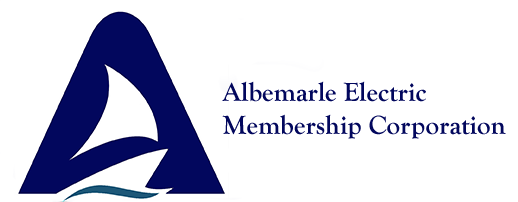Safe working procedures are expected to always be conducted at the highest levels possible. The co-op has a culture of safety that permeates everything we do. Whatever the task, the first aspect of performing that job is determining how it can be done safely. Those practices extend from the most dangerous tasks of restoring power to simpler tasks of cleaning up a spill.
Each week begins with a Monday morning safety meeting. These meetings often include reminders of safety procedures, inspections of equipment, discussions of any near-misses and other safety related topics that need to be discussed.
The co-op also has a safety committee that works to identify safety concerns and recommend corrections. One of the duties of the safety committee is to perform office inspections. Committee members look for hazards such as overloaded bookcases, trip hazards, and flammable liquids. All co-op personnel are required to practice what is called 200-percent accountability.
This means that employees are 100 percent accountable for their personal safety, as well as, being 100 percent accountable for their coworkers’ safety. When in the field, linemen conduct tailgate meetings prior to performing the task at hand. This ensures that all are on the same page as to what each lineman’s responsibility is, and how the crew will coordinate the work. On line crews, everyone from the most senior employee to the most junior employee has the authority to immediately halt a job if a safety hazard is identified. Linemen are also required to pass an annual timed test performing a pole-top rescue, as well as, a bucket-dump rescue of a practice dummy. The two annual tests ensure that linemen are proficient at rescuing a fellow linemen using climbing gear and a rope or by lowering and dumping an injured lineman from a bucket on a hydraulic lift.
Every three years, Albemarle EMC must undergo an unannounced safety inspection called the Rural Electricity Safety Achievement Program (R.E.S.A.P.), which is conducted by the N.C. Electric Membership Corporation. This inspection reviews every aspect of the co-op to determine if an adequate level of safe practices is maintained. The co-op is graded on the building, equipment, employee knowledge, and numerous other items.
All employees receive periodic training on subjects such as CPR, first aid, bloodborne pathogens, proper lifting methods, office safety, etc. Office employees are also trained how to use safe work habits. This includes everything from placing warning signs on wet floors to use of an alert system during a robbery.
Of course, the main reason for this culture of safety is a workforce that goes home each evening to their family. That said, there are other benefits worth mentioning. By reducing injuries, employees can maintain a state of physical readiness, which is essential to the power industry. A safe workplace also promotes good employee morale. Finally, working safe is good for business. By law the co-op must pay worker’s compensation insurance based on a formula that includes accidents. The fewer the accidents, the lower the amount Albemarle EMC must pay into worker’s compensation. Anything that helps the co-op reduce overhead has the potential to help lower rates for members.
Albemarle EMC’s culture of safety also extends to the community we serve. We make electricity safety literature available for adults and children. We also have an electricity safety program that we present to school children to make them aware of dangers such as the relationship between electricity and water and the hazards of appliances with damaged power cords.
